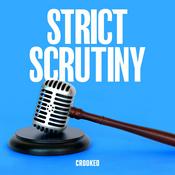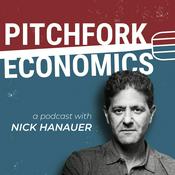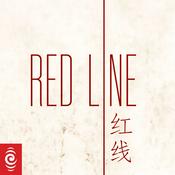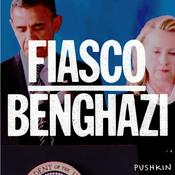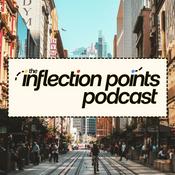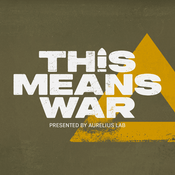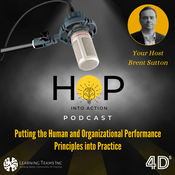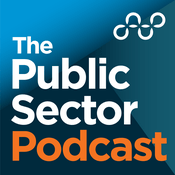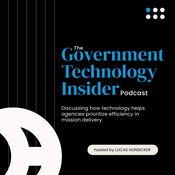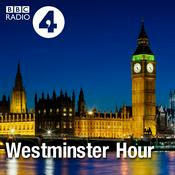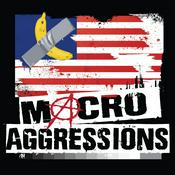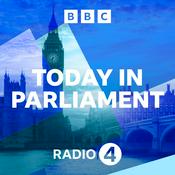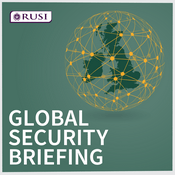123 episodes

Ep.123: Owned, Extorted, and Gaslit
17/12/2025 | 1h 12 mins.
Since returning to the White House on Jan. 20, Donald Trump has imposed one-sided tariffs on the European Union, forced the bloc to commit to buying vast quantities of American natural gas, and effectively threatened annexation of Greenland. The latest indignity for Europe includes a White House National Security Strategy that calls on far-right parties to muster patriotic resistance to European policies. Instead of standing up to this blatant foreign interference, EU leaders have repeatedly tried to appease Trump and avoid any possible escalations of tension — even at the cost of their dignity. Examples include European Commission President Ursula von der Leyen weakening EU environmental and digital regulations in line with American demands, and NATO Secretary General Marc Rutte addressing Trump as "daddy" in front of the world's media. Trump may be the proximate cause of this annus horribilis for the EU. But the reasons for subservience run far deeper, says Dave Keating, a broadcaster and the author of a new book, The Owned Continent. A key factor is US command and control over the NATO military alliance, which Europe has relied on for protection from Russia for nearly eight decades. Trump and Maga are now openly exploiting that military dependency, amid Russia's assault on Ukraine, to block European regulation of tech oligarchs and fossil fuels. "Never before has there been an explicit connection from the US government between the military protectorate and EU policy," says Dave, who says the extortion is "a first" for the Trump administration. Another factor behind the European reluctance to treat the US in a more adversarial fashion, even as Maga amps up its belligerence, is the pervasiveness of American culture through cinema, news media, social media and streaming platforms. "Europeans are inundated by American culture from birth" says Dave. That also makes it "hard to accept that the US is a threat." Freeing Europe from its long vassalage is a strategic priority that starts with creation sovereign EU defense capabilities, says Dave. But that would require acknowledging that France was right to resist reliance on US military systems and hardware. It also would require Europe to make a decisive break with Atlanticism, an ideology that prioritizes NATO and that remains deeply entrenched among EU elites and in Poland and the Baltics. But Atlanticism may be an increasingly hard sell. It relies on increasingly implausible assumptions: that the US will keep large numbers of troops in Europe and uphold its mutual defense commitment under the NATO treaty despite abundant evidence otherwise. "At what point do citizens say, 'enough is enough, we've had it with these centrist European leaders lying to us, gaslighting us'?" Dave asks. "If Europeans keep electing these people, then they are signing their own death warrant as a sovereign continent." SOMO report on the Corporate Sustainability Due Diligence Directive.The Authoritarian Stack project on the threat posed by tech billionaires. Support the show

Ep.122: Anti-LGBT as a Strategic Threat
12/11/2025 | 50 mins.
The lurch rightwards in our politics has brought a wave of disinformation and discrimination against lesbian, gay, bisexual, trans and intersex people. As well as exacerbating prejudice, the anti-LGBTIQ+ campaigns, many supported by US evangelicals and Russian oligarchs, foment social divisions and aim to weaken liberal democracy. That's why the new era of bigotry should be seen as a strategic threat for Europe, former Irish Prime Minister Leo Varadkar explains in this episode. Leo is currently a Senior Fellow for the Global LGBTQI+ Human Rights Program at the Carr-Ryan Center for Human Rights at the Harvard Kennedy School. He stepped down as Taoiseach last year after serving two terms and making history as Ireland's first openly gay head of government. Among Leo's current concerns: how US diplomats and corporate executives who formerly supported LGBT rights have changed position or melted away, leaving regions like Central and Eastern Europe especially vulnerable. "The fact that America is withdrawing from that space has left it open to Russia," says Leo. "That’s where I think the European Union needs to come in and needs in many ways I think to fill the space of the Americans." A particular focus is Hungary, the EU state that is the subject of what Rémy Bonny, executive director of Forbidden Colours, calls the largest human rights lawsuit in the bloc's history. That lawsuit concerns a so-called child-protection law that censors inclusive sex education, equates LGBTI lifestyles with pedophilia, blocks adoption for LGBTI couples, and restricts content in media and advertising. A top advisor has already issued a preliminary finding against Hungary and the Court of Justice of the EU is expected to reach a verdict next year. A definitive ruling against Hungary "can't go without a meaningful response" from EU authorities, says Leo. "The treaties are worth nothing if that's the case." When it comes to EU politics, Leo encourages a return to centrist leadership rather than reliance by his political family, the center-right European People's Party, on the possibility of majorities with the far right. "I much prefer us being in alliance with Liberals and Social Democrats and Greens." Leo also critiques fellow conservative Ursula von der Leyen, the president of the European Commission, for saying "too little, too late" about homophobia in Hungary — and about Israel's conduct of the war in Gaza. Even so von der Leyen does "come around to the right position eventually, which is better than the reverse." As for Donald Trump, who Leo met several times as Taoiseach, the US president is taking a far more hostile approach to LGBT rights compared to his first term. Whether Trump actually leaves office after 2027 general could come down to the US military. "It's a dangerous time." Asked whether he could have done more as Taoiseach to regulate the giant US tech companies that have bases in Ireland, Leo says he oversaw stepped up enforcement during his time in office. There was however a wider failure, where tech companies still are shielded from liability for the illegal and highly polarizing content hosted on their platforms. "We allowed them to really get away with this idea that they're not publishers" and "that wasn't right," says Leo, who says he supports a crackdown on algorithms that amplify hate and toxicity.Support the show

Ep.121: Ungoverning the EU
31/10/2025 | 53 mins.
The buzzword in Brussels is simplification. In reality it’s a euphemism for sweeping deregulation and it marks a dramatic U-turn for the European Union. For decades, the EU prided itself on being a regulatory superpower, capable of extending its influence through protective and demanding regulation. That's now changing. A year ago Mario Draghi, the former president of the European Central Bank, dusted off the timeworn idea of cutting red tape. Draghi's message was eagerly embraced by many EU leaders, many from conservative and far-right parties, and many of them increasingly aligned with Trumpian ideas on blocking migrants, ignoring the environment and canceling overseas aid. Draghi's ideas have since snowballed. In the works are measures to water down laws on everything from technology and chemicals to farming and finance. Executing on those plans, and more, is European Commission president Ursula Von der Leyen. She’s been using the deregulation mantra to deflect criticism from her far-right rivals and to placate US tech giants and Donald Trump and his threats to abandon Europe militarily. To be sure deregulation is having a moment. In Argentina, in India, and in the US where Elon Musk's DOGE dismantled entire agencies, almost certainly illegally, and where Russ Vought at Trump's budget office says wants to put civil servants in trauma. The approach in Europe is far less blunt and belligerent. But there are significant parallels according to Alberto Alemanno, the law professor at HEC Paris and the founder of The Good Lobby. Alberto sees an ideological and methodological alignment across the Atlantic that includes the sidelining of legislators, the privileging of executive fiat, and the possible DOGE-style downsizing of the European Commission. Alberto also warns that von der Leyen is "pushing towards illegality" by bundling together deregulatory measures in so called omnibus laws that bypass the usual channels of evidence-based policymaking and of democratic consent. The European Ombudsman, Teresa Anjinho, has opened an investigation into the omnibus process. But her opinions are non-binding. Meanwhile EU governments are pushing for continuous rollbacks, and von der Leyen has promised to deliver. But there is a deeper unease here, that simplification is not just about deregulation, or pandering to Trump, or the far right, rather that simplification will end up undermining the capacity and legitimacy of EU administration itself. A pair of US academics have described this phenomenon as ungoverning, discrediting institutions and the machinery of government and creating circumstances where enforcement and the rule of law suffer and authoritarians can thrive. Alberto doesn’t see the quite the same deliberate campaign in Europe as in the US. But he warns that von der Leyen’s willingness to take a chainsaw to previously agreed laws — and to act as little more than the executor of member states’ demands — is a kind of dereliction of duty that risks permanently weakening the Union at a moment when many Europeans are looking for answers beyond national borders. As Alberto puts it: the EU is becoming ungoverned — by its own political class.Support the show

Ep.120: Hungary’s Deepening Dependency on Russian Oil
07/10/2025 | 29 mins.
Three years ago, as part of efforts to weaken Putin's war chest, the EU banned imports of Russian crude oil. But those countries with a high dependency on Russia were allowed to continue importing, the idea being they needed more time to adapt. Poland, Germany and the Czech Republic have since stopped. But not Slovakia, and not Hungary. Both still take deliveries of Russian crude through the Soviet-era Druzhba or "Brotherhood" pipeline. In this episode, Attila Steiner, the Hungarian State Secretary for Energy, acknowledges that his country is increasing, not decreasing, dependency on Russian crude, and that Hungary is expanding links with the Druzhba network. That's not how EU sanctions are supposed to work. It's also fundamentally at odds with the REPowerEU plan to stop all Russian oil imports by the end of 2027. The behavior of Hungary, which is facilitating Russian oil exports amid Putin's continued assault on Ukraine, shows contempt for Brussels and Kyiv. Moreover an alternative to Russian oil already exists in the form of the Adria pipeline that can deliver oil from suppliers like Kazakhstan via Croatia. But Steiner using the Adria is neither advantageous for Hungary nor for its giant energy conglomerate MOL. And, in any case, it looks like the pressure is off Hungary to quit Russian crude, at least for now. Steiner credits a recent diplomatic campaign by Prime Minister Viktor Orbán, first with Donald Trump, who is no longer calling on Hungary to change suppliers, and second, with former German Chancellor Angela Merkel, who effectively gave her blessing to continuing Russian crude imports. But that's unlikely to be the end of the story. There's domestic politics to consider too. Hungary imposes a tax on the profits that are partly generated from importing the relatively low-priced Russian crude. Yet prices at the petrol pump remain above the EU average, and that contributes to an already delicate political situation for Orbán's ruling Fidesz party, which is trailing in the polls ahead of elections next year. It's also a delicate situation for Steiner himself. He seems set to go head-to-head with Péter Magyar, the main opposition figure in Hungary who opposes Russian imports, in a forthcoming contest for a parliamentary seat in Budapest. That, Steiner says, will be "an interesting fight".Support the show

Ep.119: Post-Truth Nation
14/9/2025 | 1h
There is an expanding landscape of lies, distortions, and half-truths shaping global politics. The latest instance is the immediate blame heaped on the left for the killing of Charlie Kirk despite evidence that right-leaning attacks are more common. It's one more sign that the line between reality and fabrication is getting blurrier. And as misinformation metastasizes, there are mounting concerns about whether democratic institutions can survive. This episode turns a spotlight on Slovakia, the central European nation that's become a hotspot for post-truth politics. Seven years ago, Prime Minister Robert Fico was forced from power after the execution-style murder of investigative journalist Jan Kuciak and his fiancée. But Fico made a comeback, formed a coalition with the far right, and now is surrounded by an array of ultranationalist reactionaries, white supremacists and delusional post-truthers. They include Rudolf Huliak, the misogynistic tourism minister; Peter Kotlár, the Covid denier who takes his cue from RFK Jr.; Filip Kuffa, the state secretary for the environment who mocks endangered species; Lukáš Machala, a powerful official prone to flat-earth theories; and his boss, Martina Šimkovičová, an aggressively homophobic culture minister who is putting Slovakia's public broadcaster under political control. That makes Slovakia a key test for the European Commission and for its new Media Freedom Act, which aims to stop political interference in editorial decisions. But whether the Commission will take action remains an open question. Like other leaders of would-be autocracies, Fico uses strategies to feign compliance to throw up roadblocks to enforcement. There are also geopolitical concerns. What if enforcement pushes Slovakia even further into the Kremlin's orbit? That’s the wrong question says Pavol Szalai of Reporters sans frontières. In reality the Commission's failure to act would expose Slovakia to yet more post-truth, pro-Russia messaging that weakens the EU's ability to defend Ukraine and itself. In this episode: Pavol describes how the EU can help Slovakia combat a trend that's hobbled media in Hungary, left Polish media in disarray, and that promises to damage media in Czechia if, as expected, the far right comes to power there in October.Support the show
More Government podcasts
Trending Government podcasts
About EU Scream
Listen to EU Scream, Strict Scrutiny and many other podcasts from around the world with the radio.net app
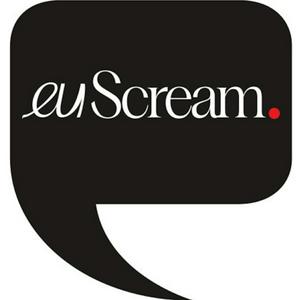
Get the free radio.net app
- Stations and podcasts to bookmark
- Stream via Wi-Fi or Bluetooth
- Supports Carplay & Android Auto
- Many other app features
Get the free radio.net app
- Stations and podcasts to bookmark
- Stream via Wi-Fi or Bluetooth
- Supports Carplay & Android Auto
- Many other app features


EU Scream
download the app,
start listening.
